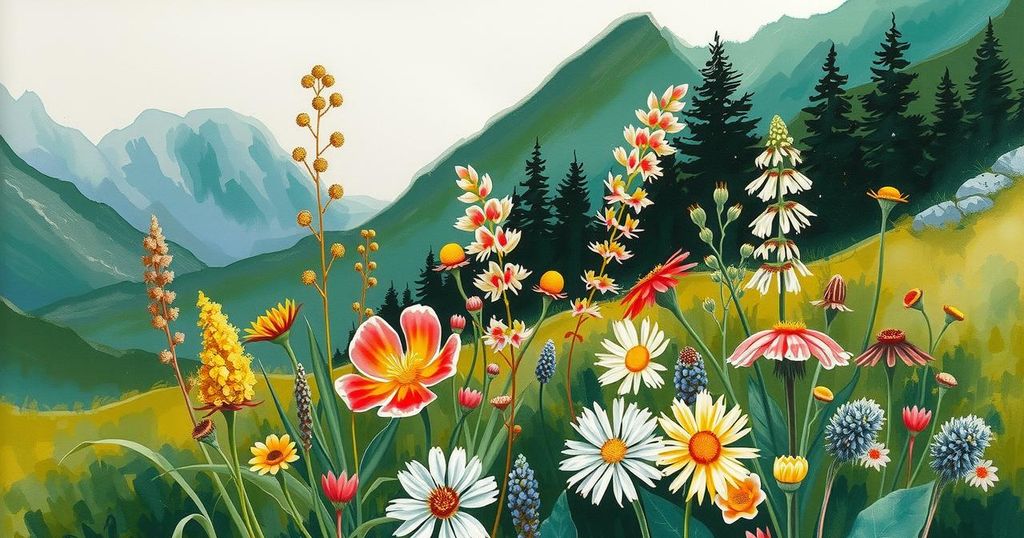Emily Griffoul of the Betty Ford Alpine Gardens is conducting a scavenger hunt to locate and collect seeds from Rocky Mountain alpine plants that are threatened by climate change. These plants, notable for their adaptations to extreme conditions, are at risk due to invasive species from lower elevations. Griffoul uses historical data to assist in finding sufficient populations before seed collection to ensure their survival.
Emily Griffoul, a botanist from Colorado’s Betty Ford Alpine Gardens, explores the Rocky Mountains in search of unique alpine plants. These plants have adapted to survive harsh conditions, including strong winds, intense sunlight, and heavy snowfall. According to Griffoul, these species are remarkable both for their beauty and evolutionary significance.
Many alpine plants face significant threats due to climate change, which is gradually warming their high-altitude habitats. This shift allows flora from lower elevations to encroach upon and displace native alpine species. In response, Griffoul and fellow scientists are actively collecting seeds from these plants to preserve their genetic diversity and prevent extinction.
Before collecting seeds, it is essential for Griffoul to ascertain that sufficient populations exist in the wild, ensuring that seed collection does not jeopardize their survival. This process can be complicated if the populations are notably small. To assist in locating these plants, she employs historical data and photographs provided by volunteers.
Griffoul describes her fieldwork as an exhilarating experience, stating, “And then once you get out there, it’s like the best scavenger hunt in the world.” If successful in locating viable populations, she collects seeds that will enrich the garden’s collection, thus contributing to the long-term protection of these remarkable alpine species.
In conclusion, Emily Griffoul’s efforts to locate and preserve Rocky Mountain alpine plants exemplify the urgent need to protect these unique species from climate change threats. By carefully collecting seeds while ensuring population viability, she and her fellow scientists aim to safeguard the genetic diversity of alpine flora for future generations. Her work highlights the intersection of conservation, science, and adventure.
Original Source: yaleclimateconnections.org




